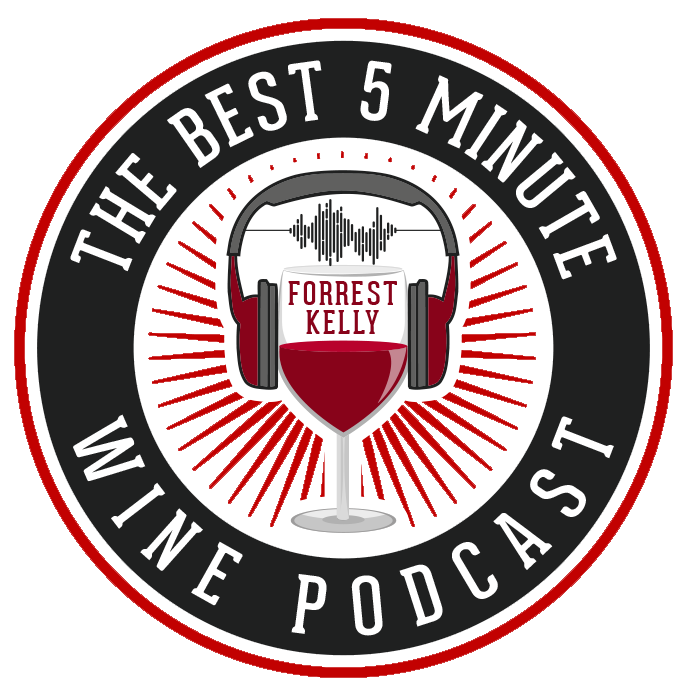Episode 148
Rimessa Roscioli - Rome, Italy Pt. 7
In this episode, we dive into the exciting expansion of Rimessa Roscioli to New York City. Our guest, Lindsay Gabbard, co-founder and sommelier, shares the details of their new location at 43 McDougall Street in Soho, designed to replicate the unique dining and wine pairing experience of their original Rome establishment. Discover the innovative sustainability initiatives that Rimessa Roscioli is pioneering, including the use of commercial sailboats to ship wine club boxes from Europe to Brooklyn, a first in 160 years. Learn about their patented biodegradable popcorn packaging, designed to protect wines during transit while being eco-friendly. Lindsay also discusses their efforts to save old vineyards and create immersive experiences for wine club members, including stays at vineyard properties and hands-on winemaking opportunities.
Your Host: Forrest Kelly is an experienced Radio/TV broadcaster who has interviewed some of Hollywood’s biggest celebrities, from Garth Brooks to Kevin Costner. A lover of wine who is fascinated by the science behind it.
Voted One of The Best Travel, Top 5 Minute, and Top Wine Podcasts.
Transcript
Welcome. Welcome to The Best 5 Minute Wine Podcast with Forrest Kelly.
Forrest Kelly:So if I can't fly all the way to Rome, Italy, to get the full Rrimessa Roscioli experience, where can I go?
Lindsay Gabbard:New York started about maybe eight months ago at this point. So it's been open. There's an upstairs and a downstairs.
The upstairs is meant to replicate a little bit more of salumedia to Roscioli, which is only an Ala carte restaurant. And downstairs was meant to replicate a little bit more every mess of Richoli, which is the concept of food and wine, pairing fixed menus.
And there's even a beautiful cellar down there, which is incredible for hosting private parties and smaller tastings. I think it hosts about 20 people or so, maximum. No, it's. They're also now open for lunch.
We have a slight kind of a smaller deli section as well, where people can come purchase some products for takeaway as well. There we're 43 McDougall street, which is right in the heart of Soho.
Forrest Kelly:It's just been fascinating to hear about everything that you do with such great passion and attention to detail.
Looking forward in the future, have you kind of exhausted all the opportunities and how you can stretch the boundaries of imagination of what Ramessa Richoly can do?
Lindsay Gabbard:Oh, I mean, we do some pretty cool things. One of our biggest focuses on that kind of intertwines into everything we do is on sustainability.
Obviously, naturally, by working with smaller producers, smaller producers always in general, have a little bit more of sustainability in terms of the way they farm, in terms of the way they think of the environment. So they also think more about sustaining communities. So not just sustainability for the environment, but the idea of sustaining communities.
So we also, this past year, used the first sailboats to ship some of our wine club boxes from Europe, while we at the boat leaves from St. Malo, France, and it arrives in Brooklyn. But we sent 300 boxes of wine on the first commercial sailboats that launched in the last 160 years.
Basically, the project is with grand a sail, and we hope to be able to continue to find unique, sustainable ways to ship.
Our shipper also patented a really unique packaging for the interior of the wine box where we ship the wines for the wine club, made from actual popcorn. So it's completely biodegradable. So in the future, as soon as that officially can launch, we'll be using popcorn as the interior of the wine boxes.
Some people, the first time we did a test with it, some people thought we shipped them popcorn to eat, which you could eat it, and you're not going to die, but it was actually meant to be the packing materials. So that's one of our biggest, biggest things, is thinking about community sustainability from, I mean, green hosting for our website.
Everything we do, we think about the environment. So that's probably one of the other kind of biggest initiatives that we're taking on. And we're also going to be in the future.
We've bought some small vineyards, try to save them, essentially, because some vineyards, they get up to 70 years old, maybe someone's about to abandon them. And you abandon 70 year vineyards, you don't get those back for another 70 years if someone decides to replant them.
And, you know, as good of care as the previous owners did, which we're not so good about that anymore, we're getting Lazier as human beings.
So we've saved a couple of vineyards that we'll use for making wines for our wine club in the future, partnering with some of our artisan winemakers in those regions. And then we're also going to have a little house on some of the different properties where our wine club members can go and stay in the future.
So that'll be a future project that we're. And then people can be more involved in the winemaking process itself as well, because usually people are quite curious about that.
So we, like I said, we really try to give a full, full experience with everything that we do with our restaurant and wine club, et cetera.
Forrest Kelly:Wow, the crowd.
Lindsay Gabbard:Thank you very much.
Forrest Kelly:The crowd is going crazy. That's just insane that you're the doing this. You called it Grande sale.
Lindsay Gabbard:Grande du Sale is the name of the company that we've worked with in the past.
Forrest Kelly:How do you spell that?
Lindsay Gabbard:G R a I n, like grain. The s a I l sale. The wine mate. Good care of the land.
They, you know, they farm organically, biodynamically, and then, you know, of course, you know, the ideal situation would be like a lot of Italians do, which is they just drink locally and things sometimes don't even get bottled.
You just go to your neighbor's house with a two liter levissima water bottle and fill it up from, you know, the bulk style wine that they're making, and that's it.
But unfortunately, we live in a world where we want to be able to exchange culture, and we want to continue to facilitate this so that people in America can, can be connected to italian wines.
But this will also allow the alignment, you know, the way the wines get shipped, because it would be really, just really frustrating when the winemakers spend this much time caring about the environment, and then we throw the wine on a plane. And this is the only. This has really been the only or a big barge boat.
And this has really been the only way that you can ship for the last 160 years. Well, even less for planes, of course.
But we are really excited to find alternative means to ship things in a more sustainable ways that aligns with the way the wines are being produced themselves. So that was really the exciting part for us.
Forrest Kelly:I'll have more details in the show notes about how RimessaRoscioliis trying to protect wines during transit with recyclable materials, sailboats to ship wines. In fact, their website is on a carbon neutral server.
We've got one more episode as we close our conversation with Lindsay Gabbard of Rimessa Roscioli.
Forrest Kelly:The Best 5 Minute Wine Podcast
Forrest Kelly:Don't forget my favorite part.
Forrest Kelly:Please, please. Oh.


